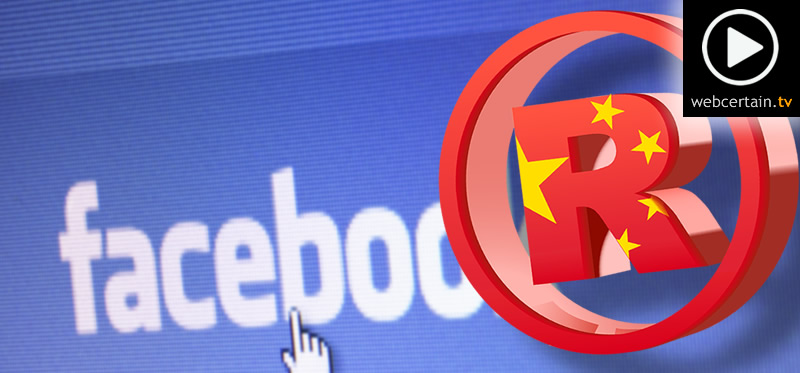Global Marketing News – 11th May 2016
Facebook wards off wannabe trademark-thief in China
Facebook has won its case against a Chinese company that registered itself under the same name.
The Chinese ‘Face Book’, registered itself as a separate trademark and split the social network’s famous name into two separate words.
The court in Beijing told the firm that they had “violated moral principles” with an “obvious intention to duplicate and copy from another high-profile trademark”.
Since Facebook was banned in China, they have faced a hard stance from Chinese authorities, but this latest decision has led to speculation that the country’s feelings towards Facebook may be softening.
Mark Zuckerberg has also attempted to personally reduce the standpoint against Facebook, by recently visiting the Chinese chief of propaganda, Liu Yunshan.
Western companies have often had trouble having trademarked goods upheld, as they have to prove the name is well-known in China.
Only recently did Apple lose its case against a leather product manufacturer who sell items under the name IPHONE.
Russia looks to introduce “real name rule”
The Russian authorities are looking to introduce a new rule, forcing online commenters to register with their real names.
Part of the ‘Unified Identification and Authentication System’, the new legislation would move the responsibility of undesired comments away from the site itself, and onto the user.
26 million Russians are already signed up to the system which is already used by some websites.
But some, like Rambler & Co, are already enforcing policies where the user must even provide passport identification.
However, the new rule will be voluntary for the sites, and some may choose to not use the identification system and bear the brunt of the responsibility themselves.
The Deputy Head of State Duma committee on information policy, Vadim Dengin, said that everyone had to use passport identification in the real world, so “it should be the same on the Internet.”
The move has been questioned by digital rights activists from RosKomSvoboda, who said that it may lead to commenters being punished under the “anti-extremist” law, as has happened with social media users in the country.
Instagram triumphs over Snapchat
Instagram has a huge advantage over social media competitor Snapchat, according to analysis from L2 ThinkTank.
The study has revealed that whilst brands are reluctant to adopt Snapchat, Instagram can now boast that over 90% of the 879 worldwide brands analysed used its image posting service.
Notably, the research showed that 100% of brands in the automotive industry used Instagram, with 98% of fashion brands and 96% of beauty and jewellery brands using it as well.
This number drops considerably when looking at Snapchat, where only 25% of automotive brands had adopted it.
The highest percentage of brands in an industry to use Snapchat was the fashion industry where 71% of the brands analysed used the app, but the average overall was around 36%.
According to eMarketer, the impressive range of brands embracing Instagram is due to companies wishing to diversify their social media presence before expanding on more established sites.
Twitter bars intelligence agencies from analytics service
And finally, according to an unnamed senior US intelligence official, Twitter has taken the move to cut off intelligence agencies from having access to its analytics service.
In the past, the service had allowed intelligence agencies in the United States to sift through Twitter’s entire posting-output, in order to help with potentially dangerous events.
Following multiple examples of tension between the tech industry and the American government, Twitter has said that its “data is largely public and the US government may review public accounts on its own, like any user could”.
The analytics tool itself is run by the private company Dataminr, who Twitter have a 5% stake in, and are the only company that Twitter allows to access its data in this manner.
However, Dataminr recently told intelligence agencies that Twitter had ordered them to stop selling the data to them for data protection reasons.
Webcertain’s global marketing news bulletins are daily 5-minute videos, providing marketers with the latest international digital marketing news in an easy-to-digest format.
Podcast: Play in new window | Download
Cal O'Connell
Latest posts by Cal O'Connell (see all)
- Facebook to decrease visibility of business posts - January 16, 2018
- Naver criticised for manipulating suggested search terms - January 9, 2018
- Google Launches Google Go App For Emerging Markets - December 8, 2017







[…] article, Facebook Wards Off Wannabe Trademark-Thief In China, first appeared on multilingual […]